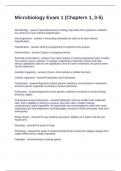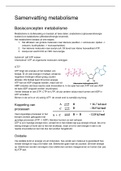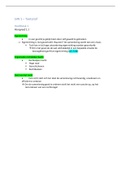Van Ittersum K. (2015), Marketing and Consumer Well-being, Inaugural speech
https://www.researchgate.net/publication/282778053_Marketing_and_Consumer_Well-Being
Burroughs, J. E., & A. Rindfleisch (2011). What welfare? On the definition and domain of consumer research
and the foundational role of materialism. In D.G. Mick, S. Pettigrew, C. Pechmann, & J.L. Ozanne (Eds.),
Transformative consumer research for personal and collective well-being (pp. 249-266). NY: Routledge.
Reynolds, Thomas J., and Jonathan Gutman. "Laddering theory, method, analysis, and interpretation." Journal
of advertising research 28.1 (1988): 11-31.
Walker, Renee E., Christopher R. Keane, and Jessica G. Burke. "Disparities and access to healthy food in the
United States: A review of food deserts literature." Health & place 16.5 (2010): 876-884.
Allcott, H., & S. Mullainathan (2010). Behavioral science and energy policy.
http://citeseerx.ist.psu.edu/viewdoc/download?doi=10.1.1.208.5738&rep=rep1&type=pdf
Trope, Y., Liberman, N., & Wakslak, C. (2007). Construal Levels and Psychological Distance: Effects on
Representation, Prediction, Evaluation, and Behavior. Journal of Consumer Psychology, 17(2), 83–95.
Hamilton, R. W., & Thompson, D. V. (2007). Is there a substitute for direct experience? Comparing consumers'
preferences after direct and indirect product experiences. Journal of Consumer Research, 34(4), 546-555.
Newman, G. E., Gorlin, M., & Dhar, R. (2014). When going green backfires: How firm intentions shape the
evaluation of socially beneficial product enhancements. Journal of Consumer Research, 41(3), 823-839.
Frederiks, E. R., Stenner, K., & Hobman, E. V. (2015). Household energy use: Applying behavioural economics to
understand consumer decision-making and behaviour. Renewable and Sustainable Energy Reviews, 41, 1385-
1394.
Griffiths, P. E., and C. West. "A balanced intervention ladder: promoting autonomy through public health
action." Public Health 129.8 (2015): 1092-1098.
Chandon, Pierre, and Brian Wansink. "Does food marketing need to make us fat? A review and solutions."
Nutrition reviews 70.10 (2012): 571-593.
Abrahamse, W., Steg, L., Vlek, C., & Rothengatter, T. (2005). A review of intervention studies aimed at
household energy conservation. Journal of environmental psychology, 25(3), 273-291.
Bolderdijk, J. W., Steg, L., Geller, E. S., Lehman, P. K., & Postmes, T. (2013). Comparing the effectiveness of
monetary versus moral motives in environmental campaigning. Nature Climate Change, 3(4), 413-416.
Hertwig, R., & Grüne-Yanoff, T. (2017). Nudging and boosting: Steering or empowering good decisions.
Perspectives on Psychological Science, 12(6), 973-986.
Agrawal, V. V., Atasu, A., & Van Ittersum, K. (2015). Remanufacturing, third-party competition, and consumers'
perceived value of new products. Management Science, 61(1), 60-72.
Khan, Uzma, and Ravi Dhar. "Licensing effect in consumer choice." Journal of marketing research 43.2 (2006):
259-266.
,Van Ittersum
Marketers’ disregard of consumer well-being has not gone without consequences.
Marketers that do take consumers well-being at heart can improve their own bottom-line
and financial well-being as well as consumers’ waistline and personal well-being.
Marketing is currently defined as the activity, set of institutions, and processes for creating,
communicating, delivering, and exchanging offerings that have value for customers, clients,
partners and society at large.
Within marketing academia there is a growing call to move beyond mere value creation and
aim for the creation of shared value by adopting policies and operating practices that
enhance the competitiveness of a company while simultaneously advancing the economic
and social conditions in the communities in which it operates. Companies should
acknowledge the relevance of the well-being of their customers, creating economic value by
creating social value.
Marketing and consumer well-being
There are two broad perspectives on consumer well-being:
The hedonic perspective: focuses on happiness and defines consumer well-being in
terms of pleasure attainment and pain avoidance.
The eudaimonic perspective: focuses on the actualization of human potentials and
defines consumer well-being in terms of the degree to which people are realizing
their true nature.
Consumer well-being is defined as a state of flourishing that involves health, happiness and
prosperity.
The obesity epidemic is largely driven by the overconsumption of unhealthy foods, foods
that are energy-dense and high in saturated fats and sugars. To help combat the obesity
epidemic and its negative consequences, the article proposes to empower consumers by
focusing on the two flawed assumptions of freedom of choice and consumers’ capability of
making informed choices.
Freedom of choice
Shoppers have the opportunity to freely choose healthy foods. But access to healthy foods is
not universal. Research suggests a lack of available nutrient-rich foods in low-socioeconomic
neighborhoods, also referred to as food deserts. The freedom of choice is further challenged
by the price of healthy foods.
The capability of making informed choices
Consumers frequently run out of cognitive resources while shopping for groceries, putting
them at risk for unhealthy impulse purchases.
,Win-win solutions
Marketers focusing on profitability, ignoring consumers, may unintentionally contribute to
the growing obesity problem. Firms that improve consumers’ freedom of choice and choice-
making capabilities in the marketplace may benefit by attracting more and new consumers.
Acknowledging and understanding the limitations to the freedom of choice among
consumers, or specific consumer segments, may offer a variety of opportunities for food
manufacturers, retailers, and for instance restaurateurs. Food manufacturers and retailers
may increase the accessibility to healthy foods by introducing healthier food options, or for
instance addressing the price differential between relatively healthy and unhealthy foods.
A critical factor influencing the intrinsic motivation of firms to change their practice or
embrace government interventions is having a comprehensive understanding of consumers’
response to the proposed change and the related financial implications for the firm
, Burroughs & Rindfleisch
The past five years have witnessed a resurgent interest in consumer welfare and the birth of
the Transformative Consumer Research (TCR) movement. The objective is to provide an
important and lasting difference in consumers’ lives by a realistic assessment of TCR’s
domain and focus by taking inventory of recent development in the TCR movement and
establishing the value of materialism for advancing this cause.
The research of the TCR falls into one of four overlapping categories:
Suboptimal decision making: the myriad (often cognitive) deficiencies that lead
consumers to make poor consumption choices, either because they forego a better
choice or would have been better off by not engaging in the act of consumption in
the first place. Consumers are subject to deception in the marketplace.
Consumption-related disorders: psychological afflictions that manifest in various
consumption settings., compulsive consumption for example.
Macrosocial concerns: the macrosocial concerns that transcend society, including the
institutional structures that dictate access to material resources and services.
Materialism: the importance or value placed on the acquisition and ownership of
material objects.
Defining consumer welfare
Consumer welfare is here defined as the alignment of individual and societal needs (i.e.
physical, psychological, economic, social) as they relate through consumption. It is optimized
when an individual recognizes and balances these varied interests in their decision making.
Individual and psychological perspectives on consumer welfare
According to rational choice theory, individuals carefully select and consume products
because they expect to benefit from these purchases. An exemplar of this perspective is the





